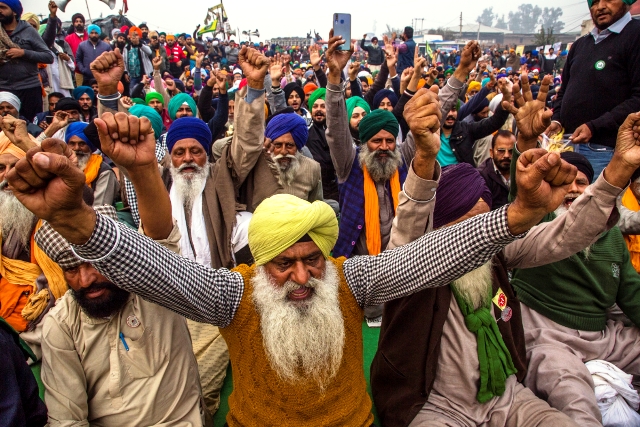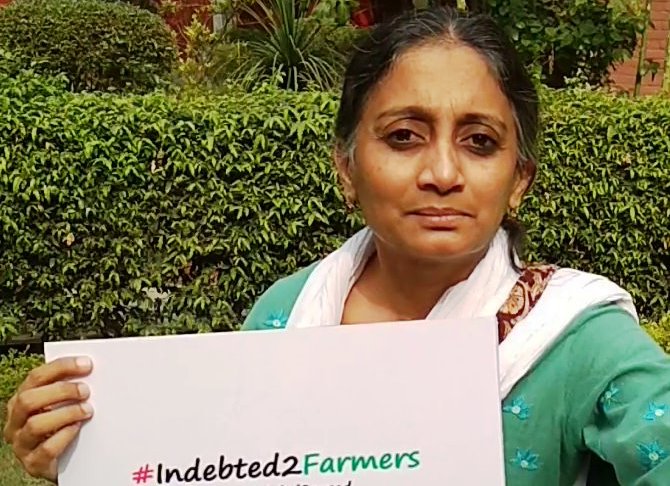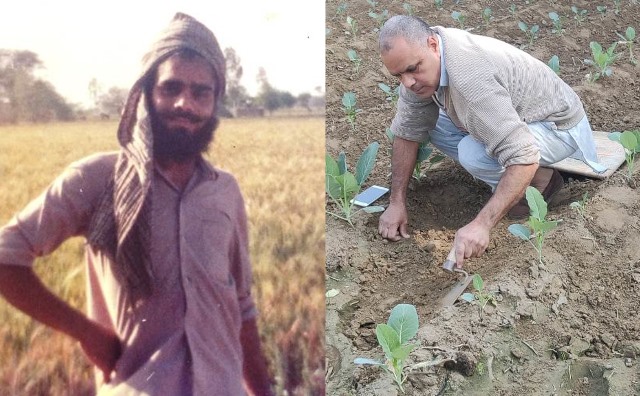The irony is dark. It has been barely two years since Prime Minister Narendra Modi launched the Kisan Drone Scheme in India. In the beginning, the scheme, which assists farmers to deploy drones for spraying fertilisers, nutrients and pesticides more efficiently on their farmlands, was launched in 100 places across the country, and later, expanded to more areas. Last week, however, drones were deployed against farmers for an altogether different purpose. They were used to bombard them with tear gas as thousands of farmers converged upon Delhi and the National Capital Region (NCR) in what is seen as a reprisal of the protests in 2020 and 2021 against the government’s policies.
Back then, in what became one of the biggest and longest mass movements in India’s history, hundreds of thousands of farmers, mainly from the agrarian states of Punjab and Haryana, had agitated for around a year against three new farm laws of the government. That movement had coincided with one of the worst phases of Covid that had hit India and it was a period of tumult. In the end, the Modi government had to repeal the three laws and accede to the farmers’ demands.
What then is the fresh wave of agitation all about? To understand that we need some recapitulation.
The farm laws and why they were repealed
The three laws that were passed in 2021 and then repealed after the protests were aimed at first, giving farmers more freedom to sell their produce outside the regulated markets or mandis; second, they enabled contract farming when farmers and buyers could pre-agree on pricing and other terms; and third, they relaxed the restrictions on storage and movement of some farm commodities such as cereals, pulses, oilseed, onions, and potatoes.
The laws led to massive agitations and clashes with the government’s security forces and police. Farmer leaders said over 700 people died during the year-long protests but the government did not confirm any deaths. The farmers opposed these laws because they feared that they would lose the protection of the government’s minimum support price (MSP) system, which guarantees a fixed price for certain crops, and that they would be exploited by big corporations. They demanded that the government repeal the laws, withdraw the criminal cases against the protesters, provide compensation to the families of the farmers who died during the protest, and ensure a legal guarantee for MSP. They also had other demands, such as pensions, debt waivers, and stricter regulation of fake seeds, pesticides, and fertilisers.
In December 2021, Prime Minister Modi announced the repeal of the laws after which the farmers temporarily suspended their protests. Why then has the agitation begun afresh and what are the issues this time round?
What do farmers want now?
Last week farmers renewed their protests as hundreds of them, mainly from the two northern states, Punjab and Haryana, marched towards the capital and the NCR. The timing of the protest was significant as it came only a few months before parliamentary elections are scheduled to be held and in which the Modi regime that is completing its second term is keen to win a third.
This time the authorities were more prepared as they barricaded the capital and adjoining areas. Delhi and the urban sprawl that makes up the NCR has an urban population of around 30 million people and the farmers’ march can drastically disrupt the functioning of the area. This time local and central police had ramped up their efforts to stop that from happening by barricading highways, pouring concrete and stacking shipping containers to halt the advancing tractors and masses of protesters.
ALSO READ: Understanding The Mandi System in India
At the core of the provocation for the renewed protests is the farmers’ demand for a guaranteed implementation of the minimum support price (MSP) for all crops so that they get what they consider fair prices and protect them from exploitation by private companies. The repealed farm bills were aimed at increasing market access and competition, but farmers had feared they would weaken existing structures and leave them vulnerable to corporate control.
About 58% of Indians depend on farming for their livelihood and as much as 68.8% of them live in the rural areas. Considering India’s estimated population of 1.4 billion, those translate into huge numbers. Many farmers are burdened by debt and demand loan waivers to alleviate their financial hardships. They also think that rising costs of fertilisers, pesticides and other inputs put further pressure on their livelihoods.
Among their list of demands is also a call for repealing the electricity amendment bill, which was enacted in 2022, to change electricity distribution rules. Farmers fear that it will increase their costs and further increase their dependence on private companies.
Government’s view on farmers’ demands
To begin with, although the three farm laws have been repealed, the Indian government still maintains that they were beneficial for farmers and were needed to modernise the farm sector. The contribution of agriculture in GDP of India is 18.3% as per the second advance estimates of national income for 2022-23. This share has been declining over the years as the economy diversifies and grows.
However, the growth rate of agriculture in India is low. In 2022-23, it was 3.3%, which is lower than the previous two years, which recorded 4.1% and 3.5%, respectively. The growth rate varies depending on the monsoon, crop prices, and other factors.
India’s farm productivity, measured by the gross value added (GVA) per worker, which was Rs. 1,00,000 in 2022-23, is much lower than the global average of Rs. 3,60,000. India’s farm productivity is constrained by factors such as small and fragmented land holdings, lack of irrigation, low use of technology, and poor market linkages. According to the government, many of these problems were sought to be tackled by the laws that the Indian government had proposed in 2021.
After the previous round of protests and the repealing of the farm laws, the government has offered what it considers alternative solutions such as MSP for select crops and increased procurement efforts. It has also held multiple rounds of talks with farmers but has not been able to agree on some of the demands such as MSP for all crops. One of the main constraints is the lack of resources to be able to do that.
The problem is compounded by the fact that with a few exceptions, agricultural income is generally exempt from income tax in India. Under the existing laws, even rich farmers with large holdings can be exempt from tax, and this often creates a loophole for tax evasion and inequality.
Is there a solution to the farmers vs. government impasse?
While farm union leaders are demanding guarantees, backed by law, of greater state support or a minimum purchase price for all crops, the government is unable to acquiesce. The central government announces support prices for more than 20 crops every year. However, agriculture falls under the jurisdiction of individual states and their buying agencies can usually buy only rice and wheat at the support level, which benefits only an estimated 7% of farmers.
The procurement of rice and wheat, the two staple foodgrains, is aimed at building a food bank to supply to a massive food welfare system in India that entitles more than half of India’s population (or 800 million people) to subsidised (essentially, free) rice and wheat through the public distribution system. In 2024-25, this food subsidy bill is estimated at Rs 2.05 lakh crore ($24.7 billion). The government has extended its flagship free food welfare scheme, which was announced during the Covid-19 pandemic, for the next five years.
Given the magnitude of the food subsidy bill, the government will find it difficult to extend the MSP to all crops as the farmers are demanding. That is why it is not able to guarantee by law the state support for procurement as demanded by the farmers. The government had, while repealing the three farm laws in 2021, said that it would form a panel of farmers and government representatives to find viable solutions to the issue. Farmers are now accusing the government of going slow on that assurance.
What to expect in the future?
The renewed protests are smaller than the massive agitations that marked the 2020-21 movement but the farmers remain persistent. The government has said it is willing to engage in dialogue but is hesitant in meeting the core demands of legally guaranteed MSP and loan waivers.
The government stresses that alternative solutions and a focus on long-term reforms are the only way to resolve the impasse but farmers are not convinced. The outcome would depend on the government’s willingness to address core demands and farmers’ ability to sustain the movement.
There is, obviously, also a political aspect to it, which is heightened by the coming elections. Further escalation of protests or a deadlock could impact agricultural production and political stability, both highly undesirable outcomes for the ruling regime that is keenly looking to be re-elected for a third term in May.






